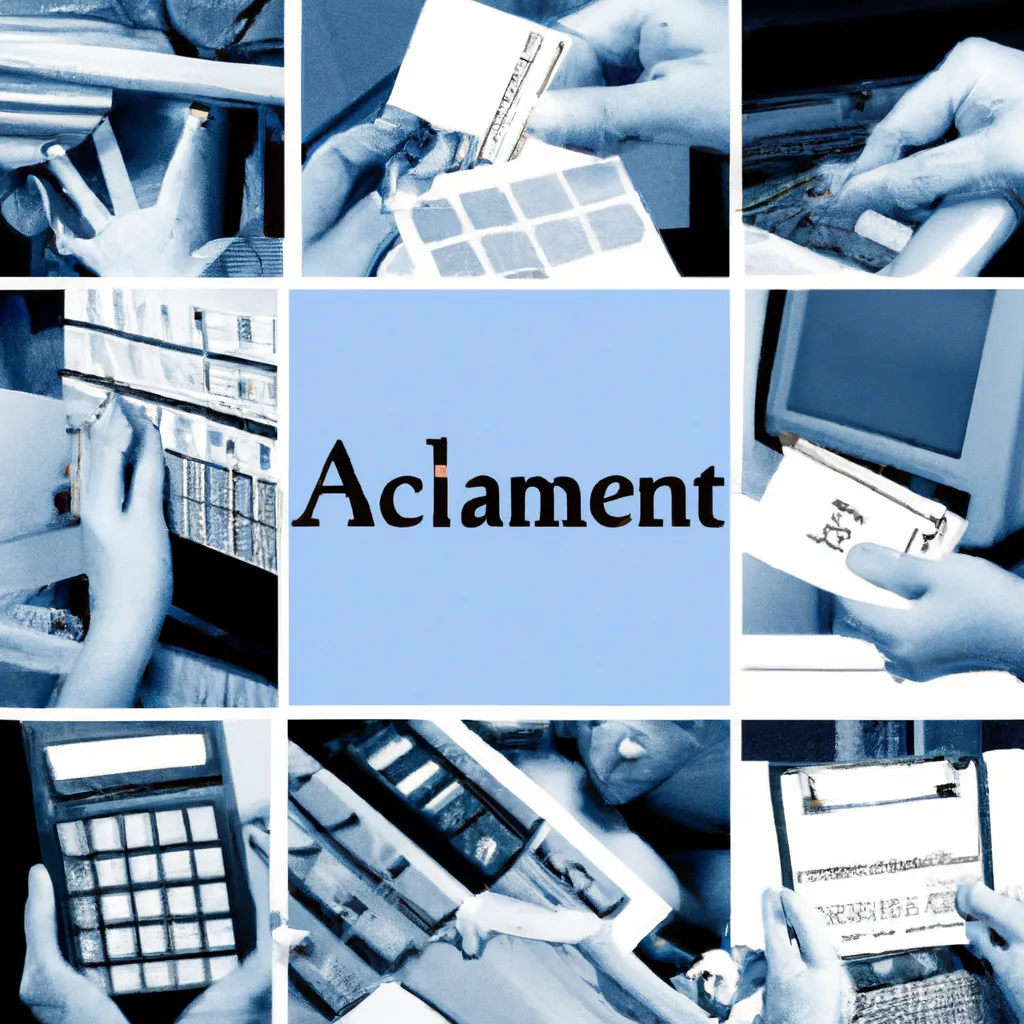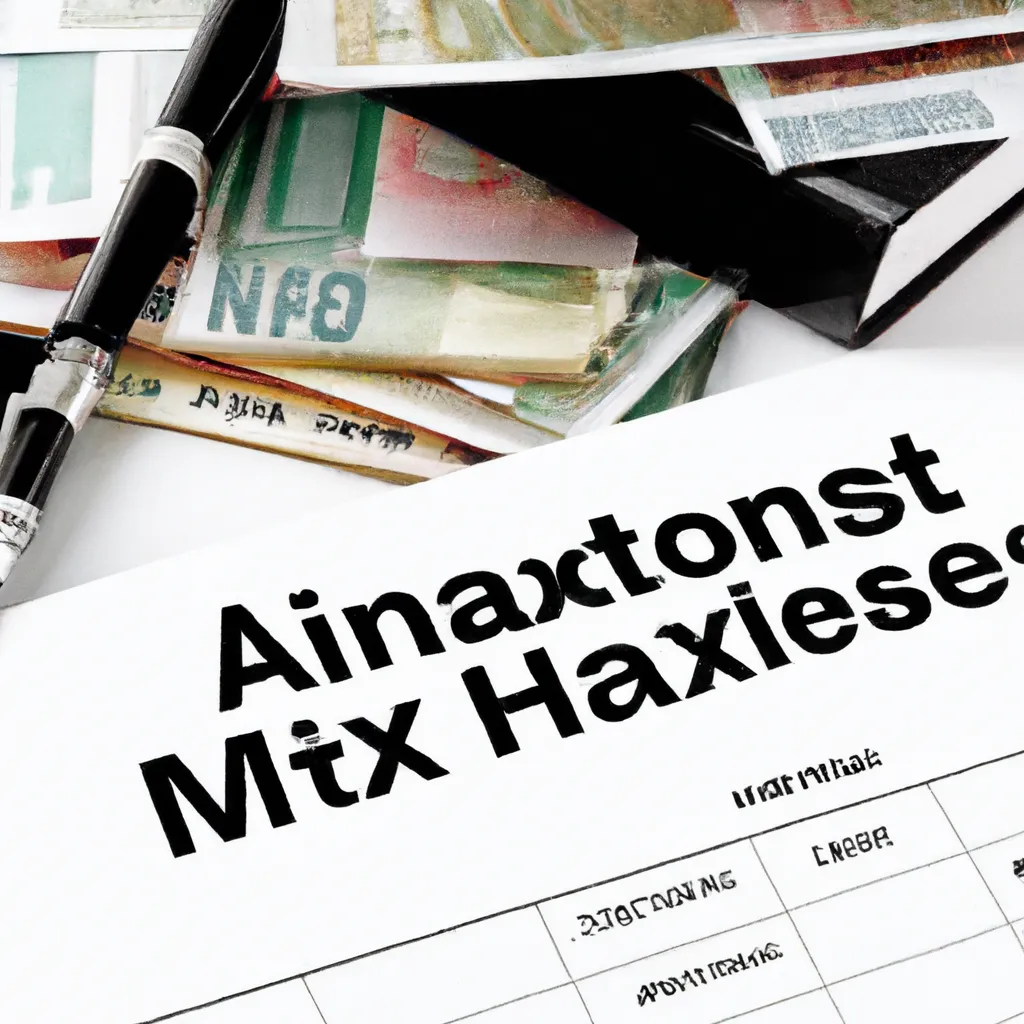Reduce inheritance tax in Ottawa with Expert Asset Management: How Can You Save Your Family's Assets. Are you worried about the high amount of inheritance tax in Ottawa. Do you want to secure your family's assets and reduce the tax burden on them. Look no further, expert asset management services in Ottawa can provide you with effective solutions to minimize your inheritance tax.
With the right asset management strategies in place, you can ensure that your loved ones receive their rightful inheritance without losing a large portion of it to taxes. These services can help you navigate through complex tax laws and regulations, and make use of available tax exemptions and deductions to reduce your tax liability. Expert asset managers have years of experience and knowledge in tax planning and asset management. They can guide you in creating a tax-efficient estate plan that can benefit you and your beneficiaries.
By reducing your inheritance tax, more of your assets can be transferred to your heirs, allowing them to maintain their lifestyle and achieve their financial goals. Investing in expert asset management services can also bring peace of mind, knowing that your family's financial future is protected. Through proper financial planning, these services can help you secure your assets and minimize the impact of inheritance tax on your loved ones. Don't let high inheritance tax in Ottawa diminish the value of your family's assets.
Seek out the expertise of asset management professionals and safeguard your loved ones' financial future. With their help, you can reduce your tax liabilities and ensure that your assets are passed on to your heirs as smoothly as possible. Your family deserves the best financial protection, so don't hesitate to consult with experts in asset management today.

Understanding inheritance tax
In ottawa, people often consider inheritance tax to be a complex topic that they don't need to worry about until they reach an older age. However, the reality is that it is an important aspect of financial planning that affects everyone, regardless of their age or income. Inheritance tax, also known as estate tax, is a tax on the transfer of an individual's assets after their death. This tax is paid by the person who inherits the assets, and it is based on the value of the assets received. In this article, we will delve deeper into understanding inheritance tax, common misconceptions, and why it's essential to minimize it.
What it is and how it works
Inheritance tax is a tax that is imposed on the value of assets that are inherited by an individual after someone's passing. The tax is calculated on the fair market value of the assets at the time of death and paid by the beneficiary. This tax can be applied on any type of asset, including real estate, cash, investments, and even personal belongings. It's essential to note that inheritance tax is different from income tax, which is calculated on the earnings of an individual during their lifetime. Inheritance tax is imposed on the transfer of assets and is based on the value of those assets at the time of transfer. Typically, inheritance tax is paid to the government by the executor of the estate.
So, how does inheritance tax work? Let's take an example. John recently passed away, leaving behind a property worth $500,000 to his daughter, sarah. Since the property is above the tax exemption limit, sarah will be subject to inheritance tax on the value of the property. The tax rate varies depending on the jurisdiction, but it can range from 10% to 40%. In this case, if the tax rate is 20%, sarah would have to pay $100,000 in inheritance tax on top of receiving the property.
Common misconceptions about inheritance tax
One of the most common misconceptions about inheritance tax is that it only affects the wealthy. In reality, this tax can impact anyone who receives assets from a deceased individual. The tax is not based on the income or wealth of the beneficiary, but rather on the value of the assets received. This means that even if you are not considered wealthy, you may still have to pay inheritance tax if you inherit assets that exceed the tax exemption limit.
Another common misconception is that only immediate family members are subject to inheritance tax. While immediate family members may receive preferential treatment in terms of tax exemptions, other individuals such as friends and distant relatives may also be subject to this tax. It's essential to consult with your financial advisor to understand the implications of inheritance tax on your situation and plan accordingly.
Why it’s important to minimize your inheritance tax
Minimizing your inheritance tax is vital because it allows you to keep a larger portion of the assets that you inherit. This means that you will have more control over how the assets are used and can potentially pass them down to future generations. In addition, by reducing your inheritance tax, you can also safeguard your loved ones from having to worry about financial burdens after you pass away. There are several strategies that you can use to minimize your inheritance tax, including having a valid will, utilizing tax exemptions, and gifting assets during your lifetime. It's essential to work with a financial advisor to develop a personalized plan that aligns with your financial goals and minimizes your inheritance tax obligations.
Inheritance tax is a tax on the transfer of assets that is paid by the person who inherits those assets. It is calculated based on the fair market value of the assets at the time of transfer and can affect anyone who inherits assets worth more than the tax exemption limit. To minimize your inheritance tax, it's crucial to educate yourself on the tax laws and work with a financial advisor to develop a personalized plan. By doing so, you can ensure that your loved ones are protected and that your assets are used according to your wishes. So, take the necessary steps to minimize your inheritance tax and secure your financial future today.

Expert asset management strategies
Managing assets is a crucial aspect of financial planning, especially in terms of taxes and inheritances. When it comes to inheritance tax, the process can be overwhelming and burdensome for many individuals. However, with the help of professionals and implementing proper management strategies, it is possible to reduce the impact of inheritance tax and ensure a smooth transition of assets in the event of a loved one's passing. In this article, we will explore expert asset management strategies that can help individuals in ottawa reduce their inheritance tax, the importance of proper accounts payable and receivable management, and the use of accrual basis accounting for tax advantages.
Reducing inheritance tax with professional assistance
Inheritance tax, also known as estate tax, is a tax imposed on the transfer of an individual's assets after their death. It is calculated based on the total value of the assets and the relationship between the deceased and the beneficiary. In ottawa, the inheritance tax rate can vary depending on the province or territory, making it essential to understand the local laws and regulations.
Working with professionals, such as accountants or financial advisors, can help individuals navigate the complex world of inheritance tax. These professionals have the expertise and knowledge to identify available exemptions and deductions that can reduce the overall tax burden. They can also assist in creating an estate plan that maximizes tax efficiency and minimizes potential disputes among beneficiaries.
One way professionals can help reduce inheritance tax is through the use of trusts. By setting up a trust, individuals can transfer their assets to a trustee who will manage and distribute them to the intended beneficiaries. This can provide individuals with more control over their assets and also help to avoid or reduce inheritance tax.
Proper management of accounts payable and receivable
In addition to inheritance tax, proper management of accounts payable and receivable is also crucial for overall asset management. Keeping track of invoices and payments, both incoming and outgoing, is essential for maintaining financial stability and avoiding any penalties or errors.
Managing accounts payable involves keeping track of any outstanding bills or payments owed to creditors or suppliers. By staying on top of these payments, individuals can avoid late fees, interest charges, and negative marks on their credit score. On the other hand, managing accounts receivable involves tracking any payments due from clients or customers. Implementing proper processes, such as regularly sending out invoices and following up on outstanding payments, can help maintain cash flow and avoid any financial strain.
Furthermore, proper management of accounts payable and receivable can also help reduce the overall tax burden. By keeping accurate records of expenses and income, individuals can claim any eligible deductions and credits, reducing their taxable income and ultimately, their tax bill.
Accrual basis accounting for tax advantages
Another valuable asset management strategy that can help reduce taxes is the use of accrual basis accounting. This method of accounting records income when it is earned and expenses when they are incurred, regardless of when the cash is received or paid. By using this method, individuals can match their income and expenses more accurately, providing them with a clearer picture of their financial standing.
Accrual basis accounting can also provide tax advantages, especially for businesses. By recording income when it is earned, businesses can defer taxable income to a later year, providing them with more cash flow in the current year. Conversely, businesses can also accelerate expenses by recording them when they are incurred, reducing their taxable income and ultimately, their tax bill.
In addition to tax benefits, accrual basis accounting can also provide a more accurate financial overview, allowing individuals to make more informed and strategic decisions regarding their assets.
Managing assets and taxes can be a complex and overwhelming process. However, by implementing expert asset management strategies, such as working with professionals, properly managing accounts payable and receivable, and utilizing accrual basis accounting, individuals in ottawa can reduce their inheritance tax and ensure a smooth transition of assets. It is essential to stay informed about local laws and regulations and seek professional assistance to create an effective and efficient estate plan. With proper management and planning, individuals can optimize their assets and minimize their tax burdens.

Inheritance tax: understanding and maximizing its impact on your estate
Inheritance tax, also known as estate tax or death tax, is a tax that is imposed on the assets that an individual leaves behind after their death. While it is a natural part of the cycle of life, it often poses a significant burden on beneficiaries who may already be grieving the loss of a loved one. As a responsible estate owner, it is important to take steps to minimize the impact of inheritance tax on your beneficiaries and maximize the value of your estate. In this section, we will explore the ways in which you can reduce inheritance tax and increase the value of your estate for your loved ones.
How reducing inheritance tax can benefit your loved ones
Reducing inheritance tax can provide significant financial relief to your beneficiaries and ensure that your hard-earned assets are passed down to them without any unnecessary costs. Depending on the value of your estate and the tax laws in your jurisdiction, your beneficiaries may end up losing a significant portion of their inheritance to this tax. By planning ahead and implementing strategies to reduce inheritance tax, you can help your loved ones avoid this financial burden and provide for them in the best possible way.
Ways to increase the value of your estate through smart asset management
One effective way of minimizing inheritance tax is by managing your assets effectively. This involves understanding the current tax laws in your jurisdiction and utilizing strategies such as gifting, creating trusts, and utilizing tax-free allowances to reduce the overall value of your estate. By seeking advice from a financial advisor or tax specialist, you can better understand the ways in which you can manage your assets to maximize their value for your beneficiaries.
Tips for minimizing inheritance tax on specific assets
While the laws around inheritance tax may vary, there are certain types of assets that typically attract higher taxes. These include accounts payable, such as credit card debt or loans that need to be repaid, and accounts receivable, such as invoices that are yet to be paid to the estate. To minimize the impact of inheritance tax on these assets, it is advisable to pay off debts and collect any outstanding payments before your passing. Additionally, assets such as retirement accounts and life insurance policies may also be subject to inheritance tax, so it is essential to take the necessary steps to reduce taxes on these assets as well.
Furthermore, making charitable donations through your estate can also help reduce the value of your estate and, in turn, reduce inheritance tax. By including charitable donations in your estate plan, you can leave a lasting legacy while also providing for your loved ones.
Understanding inheritance tax and implementing effective strategies to minimize its impact on your estate is crucial in maximizing the value of your estate for your beneficiaries. By seeking professional advice and being proactive in managing your assets, you can provide financial security for your loved ones while also leaving behind a meaningful legacy. Plan ahead and take the necessary steps now to ensure that your beneficiaries are not burdened with unnecessary financial costs after your passing.
Expert asset management services in ottawa
Managing your assets properly is essential, especially when it comes to inheritance tax. This type of tax can take a significant portion out of your assets, leaving your loved ones with less than you intended for them. Fortunately, expert asset management services in ottawa can help you mitigate this tax burden while ensuring your assets are managed efficiently. Let's take a closer look at the best companies in ottawa to turn to for reducing your inheritance tax.
The best companies for inheritance tax reduction
If you're looking to reduce your inheritance tax, it's crucial to work with a reputable and experienced asset management company. One company that stands out in ottawa is abc asset management. With years of experience in the industry and a team of knowledgeable professionals, abc asset management can help you navigate the complexities of inheritance tax and create a sound tax reduction plan.
Another top-tier company is xyz financial services. With a focus on providing personalized services tailored to each client's unique needs, you can trust xyz financial services to find the best strategies for reducing your inheritance tax. Their team of experts has a deep understanding of the tax laws in ottawa and can help you make the most of your assets.
What to look for in an asset management provider
Before choosing an asset management provider for inheritance tax reduction, there are a few key factors to consider. The first and most crucial aspect is their track record and experience in handling inheritance tax cases. It's essential to work with a company that has a proven record of success in reducing inheritance tax for their clients.
Another aspect to consider is their knowledge and understanding of different areas of asset management. This should include but is not limited to, accounts payable, accounts receivable, and tax planning. A well-rounded asset management provider will be able to assess your situation from all angles and provide comprehensive solutions.
Additionally, ensure that the company you choose has good communication skills and is transparent in their processes. You should feel comfortable asking questions and discussing your concerns with them, as it's crucial to have open communication when it comes to managing your assets.
How to get started with expert asset management for inheritance tax reduction
The first step in getting started with expert asset management for inheritance tax reduction in ottawa is to schedule a consultation with a reputable company like abc asset management or xyz financial services. During this consultation, their team will assess your current asset management strategies and recommend appropriate solutions for reducing your inheritance tax.
Be prepared to provide thorough information about your assets and any existing plans you have in place. This will help the asset management provider understand your situation better and come up with more precise and effective solutions.
Once a plan is in place, the asset management company will work with you to execute the necessary steps and track the progress of the tax reduction. With their expertise and guidance, you can rest assured that your assets are being managed efficiently while reducing the burden of inheritance tax.
Expert asset management services in ottawa are a valuable resource for reducing your inheritance tax. By working with a reputable and experienced company, you can ensure that your assets are managed professionally and effectively. Be sure to thoroughly research and choose a credible asset management provider for the best results in reducing your inheritance tax burden. With their guidance, you can secure your assets for your loved ones and reduce the financial strain of inheritance tax. Contact abc asset management or xyz financial services today to get started on your tax reduction journey.

